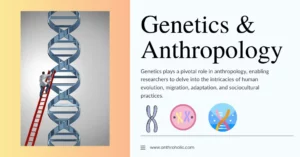AI Answer Evaluation Platform Live Now. Try Free Answer Evaluation Now
Epidemiological Anthropology
Epidemiological Anthropology is an exciting and rapidly expanding interdisciplinary field, combining anthropological theory with epidemiology to enhance our understanding of disease and health outcomes. This approach enables researchers to tackle health issues in a more comprehensive manner, integrating qualitative, ethnographic insights into the data collection and analysis process [1].

Anthropological Theory in Epidemiology
Utilizing qualitative and ethnographic insights allows for thorough data collection and analysis through the use of anthropological theory [1]. Because it enables researchers to take into account the social, cultural, and political contexts in which diseases emerge and spread, this method is especially helpful in epidemiology. By doing so, epidemiological anthropologists can better understand the factors that contribute to disease prevalence and identify strategies for prevention and treatment.
Applied Anthropology in Public Health
By using praxis-based research methods, such as data collection, problem solving, and program recommendation, applied anthropologists assess the needs of a community or population [1]. In the context of epidemiological anthropology, applied anthropologists work with public health practitioners and policy-makers to design and implement interventions that address the root causes of health issues. By incorporating anthropological insights into public health programs, practitioners can develop culturally-sensitive and contextually-appropriate interventions to improve health outcomes.
Benefits of Epidemiological Anthropology in Public Health
- Comprehensive Data Collection: Integrating anthropological theory into epidemiological research enables a more in-depth understanding of health issues by considering the social, cultural, and political contexts in which diseases occur.
- Culturally-Sensitive Interventions: Epidemiological anthropologists can develop and implement culturally-sensitive public health programs by taking into account the beliefs, values, and practices of the communities they serve.
- Contextually-Appropriate Solutions: By understanding the complex interplay between various factors that contribute to disease prevalence, epidemiological anthropologists can develop tailored solutions to address health disparities and improve health outcomes.
Conclusion
Epidemiological anthropology offers a promising approach to public health research and practice by incorporating anthropological theory and methods into epidemiological investigations. This multidisciplinary approach enables researchers to better understand the social, cultural, and political contexts of disease prevalence and develop culturally-sensitive and contextually-appropriate interventions to improve health outcomes. As the field of epidemiological anthropology continues to grow, it is essential for public health practitioners and researchers to collaborate and integrate their expertise to address the complex health challenges facing our global community.
See Also
References
[1] COVID-19: The Value of Anthropology in Public Health. (2021, June 21). Washington University in St. Louis. Retrieved May 9, 2023, from https://publichealth.wustl.edu/covid-19-the-value-of-anthropology-in-public-health/



